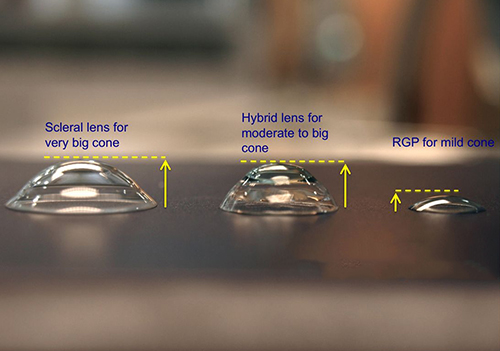Contact Lenses for the “Hard-to-Fit” Patients

Contact Lenses for Dry Eyes
Dry eyes can make contact lens wear difficult and cause a number of symptoms such as blurry vision, burning sensation, or a gritty sensation.
The first step is to treat the condition. Once the dry eye is treated and the symptoms are reduced or eliminated. Contact lenses can be fit. Some contact lens materials work better than others but everyone reacts differently. After the initial contact lens fitting, you will have a week to try your contacts and get a feel for them. If you feel they are still too dry the doctor may recommend reducing the daily wear time, changing the lens material, or reducing the replacement frequency.
Find out more about our Dry Eyes Treatments.
Contact Lenses for High Astigmatism
Astigmatism means the front of the eye is shaped more like a football. This means you need a different kind of contact lens. A toric lens is designed to correct astigmatism. It has mechanisms in place that keep the lens from rotating on the eye. Different brands have different anti-rotation designs. If soft lens rotation cannot be fixed, GP lenses with or without toric design can be used.
Contact Lenses For Giant Papillary Conjunctivitis (GPC)
Giant Papillary conjunctivitis is an irritation, not an infection, it refers to large bumps in the conjunctiva under the eyelid. This condition is often caused by allergic reactions to chemicals in contact lens solutions such as thimerosal, allergic reactions to environmental allergens, or Allergic reactions to deposits on the contact lenses. These deposits are from components of your tear film that stick to your lenses and become chemically altered. Usually changing to a daily disposable lens eliminates this problem. GP lenses are also a good solution since protein deposits don’t adhere easily to GP lenses. A medicated eye drop may also be required to reduce the inflammation prior to resuming contact lens wear.
Find Out If You Can Wear Contact Lenses
If you are interested in wearing contact lenses, call our office to schedule a consultation. Even if you’ve been told you’re not a good candidate for contacts because you have one of the above conditions or for some other reason, we may be able to help you wear contact lenses safely and successfully.

